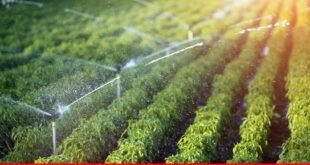Gujranwala and Sialkot are the major agricultural and industrial cities of northeastern Punjab and fast emerging cities of Pakistan for the development of economic growth.
Gujranwala being having an important industrial base in north eastern Punjab contributing a major part in its export growth through its dry port handlings. The major exports through this port include rice, sugar, textiles, carpets, glass goods, medical equipment, leather products, metal utensils, agricultural equipment, and automotive machinery parts as well as producing machinery for military uses while the main source of energy is a hydro-electric project on the Chenab River.
And through the recorded history of Sialkot which covers thousands of years, the city is fast emerging in taking the eye of investors through its history of making and exporting number of items particularly the Sialkot-made football is still famous world wide.
Gujranwala
Gujranwala is a major agricultural and industrial city of Punjab and the seventh largest city in Pakistan. For its extensive road and rail links, the city has flourished within the manufacturing and agricultural markets. The city is on the Grand Trunk (GT) Road which allows logistical connections to the provincial capitals such as Peshawar in NWFP and Lahore in Punjab. The city is known for its extensive production of sugarcanes, grains and melons. The rice grown in the city is regarded as one of the best in Asia. The rural areas around Gujranwala produce a large variety of agricultural goods; the main crops are rice, wheat, cotton, barley, grains, potatoes, sugarcane, pearl millet and melons.
Its industrial areas have numerous textile mills, cutlery manufacturing and large agricultural processing plants, ceramics industries, electronic equipments and auto industry. Master Industries (which makes tiles, ceramics, sanitary, baby diapers and ballpoints and other stationery products) and Super Asia Industry (makers of electronic equipment like air conditioner, washing machines, fans, heat geysers etc) are two major industries of Gujranwala. It is also famous for its plastic products, the big names are Boss, Citizen, Venus and Toyo. At present, there are many industries which are making motorcycles like Toyo Industries, Super Asia and others.
The city also has set up several commercial and industrial centers allowing the manufacturing of ceramics, iron safes, metal utensils, sanitary, tannery and textiles. However, the law and order has ever been an issue in Gujranwala. The rising incidents of kidnapping for ransom have been a source of worry for local businessmen and industrialists. In most of the cases, the kidnappers received a heavy price for the life of abducted relative of the businessman. In many cases, the abducted person was killed by the kidnappers. Gujranwala police has taken a number of steps to strengthen coordination between police and the business community. The incidents of kidnapping have reduced but not to the satisfactory extent.
The government needs to address other grievances of local businessmen other than security. The country does not present an environment for growth of industry and development of businesses, as the cost of doing business in the country is higher than any other country of the region. The industrialists are facing frequent power blackouts and gas load shedding due to a crippling energy crisis in the country. The businessmen of Gujranwala are looking to the authorities for a relief to the ailing industry.
Sialkot
The industrial city of Sialkot in Punjab is a hub of cottage industries. It is internationally known for its sports goods. It is the country’s football stitching capital. Sialkot gained international celebrity status when it produced the ‘Tango’ ball for the 1982 World Cup in Spain, kicking off a lucrative industry. Sialkot’s hand-stitched ball industry with nearly 50,000 stitchers is a big business, which has been affected by the machine-made footballs. Generations of local artisans and laborers have passed down the skills for crafting footballs that are used in international games including the World Cup.
The industrial set-up in Sialkot is based on small and medium enterprises (SMEs). The SMEs are believed to be the driving force behind the growth in exports from Sialkot. Value-added products like musical instruments, badges, sports goods, surgical instruments, martial arts uniforms and cutlery have brought Sialkot a name the world over. Sialkot’s strong production base has led to the completion of the Sialkot Export Processing Zone (SEPZ). The availability of special incentives, experts, cheap labor and complete infrastructure facilities in the zone has attracted foreign investors to establish joint ventures with local industrialists. The SEPZ has been developed on 238 acres of land and consists of 900 plots of four different categories. About 22 different industrial units have been accomplished at the SEPZ.
In 1985, a dry port was established in the private sector at Sambrial about 15 km from Sialkot for the speedy clearance of export and import consignments. The Sialkot dry port is successfully functioning and is located in the centre of the triangle of three districts — Sialkot, Gujranwala and Wazirabad. It caters to the needs of the entire Gujranwala district. The Sialkot dry port has also started up the container service for Peshawar in NWFP province for the speedy transportation of exportable cargo. Exportable consignments are transported from Sialkot to the Lahore, Islamabad, Karachi and Peshawar airports, Karachi Port Trust (KPT) and Port Qasim seaport.
In February 1997, the Sialkot Chamber of Commerce and Industry (SCCI) had signed an agreement at Atlanta, Georgia, in the US, with ILO-IPEC and UNICEF to completely purge the soccer ball industry from child labor through the progressive implementation of Sialkot project with special emphasis on social protection to children and their families while manufacturers were invited to join the program on a voluntary basis.
A number of units have started manufacturing mechanized footballs in Sialkot. Local manufactures have created a Sport Industry Development Trust (SIDT) with one hundred units pooling Rs100,000 each to raise the seed money of Rs10 million. The arrangements have been finalized for setting up a Sports Industry Development Centre for the modernization of the soccer ball manufacturing units enabling them to cope with the new challenges of the global market.
The penetration of machine-made footballs in the international market caused a serious dent to the country’s hand-stitched soccer industry.
However, the export-oriented industries in Sialkot are presently in severe financial crisis due to power and gas shortages.
Pakistani football lost market to China, as local manufacturers were facing rising cost of production due to rising POL prices and unreliable power supply. The local industry has made a shift from hand stitched balls to mechanically stitched balls bringing in use the advanced technology as the industry cannot survive with outdated manufacturing techniques.
Having a huge market, Chinese are interested in importing Pakistani machine-made footballs. China received large export orders of footballs from a number of countries ahead of the 2010 Football World Cup. Adidas, the German company and a major World Cup sponsor had chosen China for producing the thermally bonded balls for the 2010 World Cup. Pakistani footballs had been the preferred choice for Adidas in the 2006 FIFA World Cup.
 PAGE Blog Business Weekly Magazine
PAGE Blog Business Weekly Magazine

